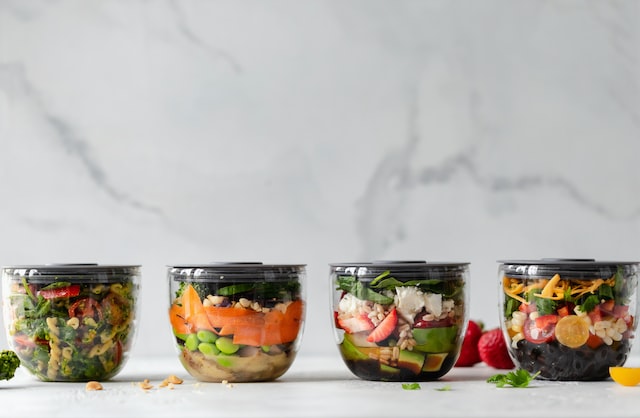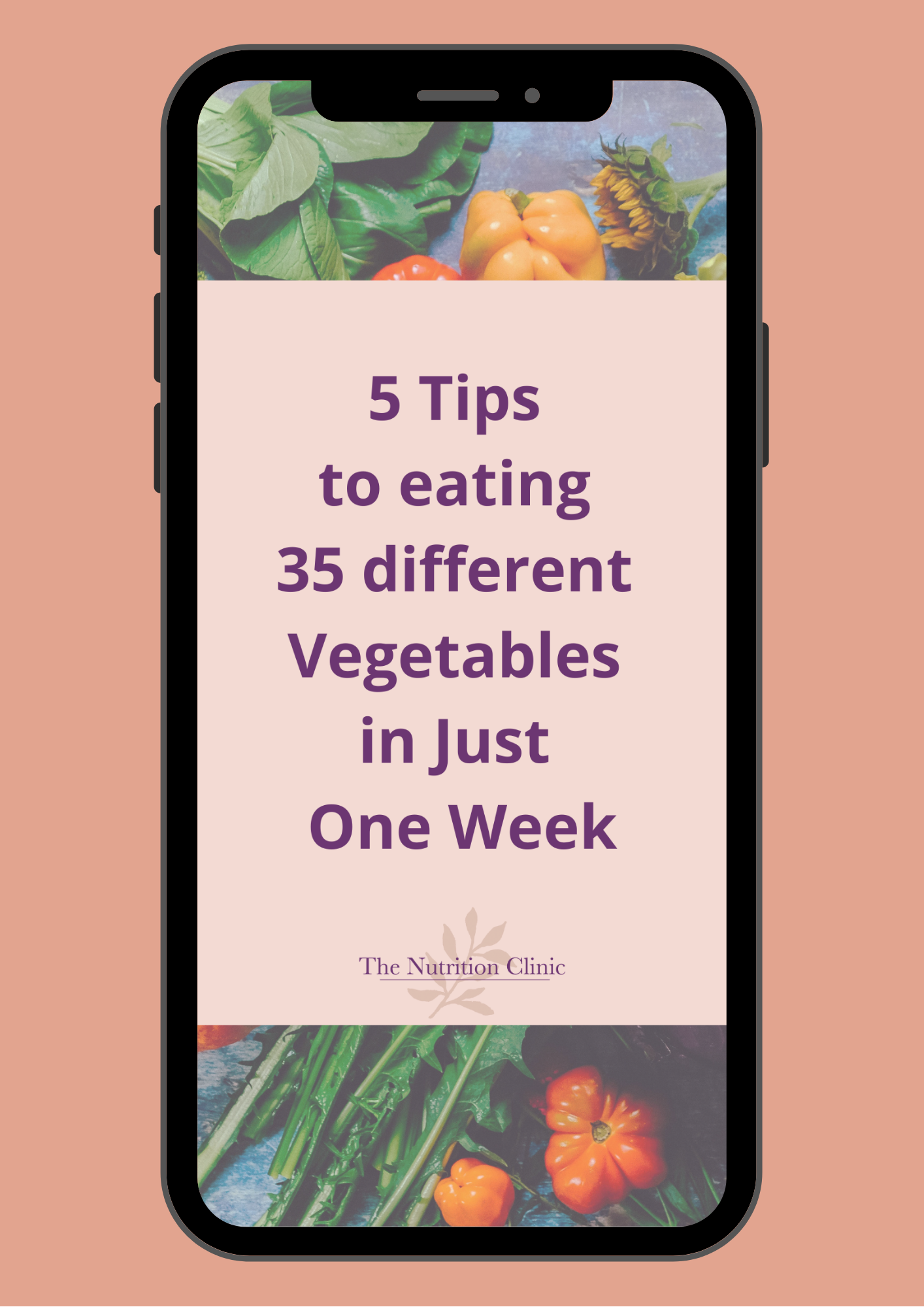Meal plans are everywhere right now. From Instagram to self-help books, you’re bound to come across a meal plan. They’re advertised as tools to solve your symptoms or to take the stress out of meal planning.
I frequently get asked for meal plans from my clients too. However, meal plans are something I don’t do or recommend to my clients. Now, just to be clear I’m talking about rigorous meal plans here, not meal planning (With ‘meal plans’ I’m talking about a done-for-you meal plan with a specific plan of foods that is followed with some sort of goal in mind. Meal Planning, on the other hand, involves planning out your meals in advance for batch cooking and prep-work. That kind of meal plan isn’t specific to any way of eating or health goal, it’s just a smart way of planning meals for budget, time and perhaps health purposes. And, there isn’t any moral consequence if you don’t eat said meal that you planned for, like there tends to be in rigorous meal plans.).
What are the disadvantages of done-for-you meal plans?
´´I just don’t know how to put everything together. Can you give me a meal plan? It’ll be easier to stick to and I’ll know what I need to eat and when´´
I understand the appeal of a meal plan. It tells you exactly what to eat, you don’t need to think about it. If these are the thoughts going through your head, let me tell you that a meal plan is probably the opposite of what you actually need. The issue I have with meal plans is that they don’t address the reasons you felt like you needed one in the first place. They are not designed for success for the very reason you don’t need to think about what’s in them.
I don’t give them out to my clients for the reasons listed below.
It’s a short-term solution
With a handed to you meal plan you aren’t learning about nutrition and how to tailor that for your situation. With a made-for-you meal plan you’re blindly following what someone else thinks is right for you. For this reason you could be eating foods that don’t agree with you, or forcing yourself to eat foods just because you perceive them to be healthy as they’re in the plan.
Instead, by listening to your body and understanding why you need to swap foods around or add in others, you’ll be able to put together the best meals for you and your circumstances. By learning and understanding you’ll have the tools to choose what’s best for you of a restaurant menu or at a friends party. By listening to your body and eating what agrees with it, you’ll have a more long term success and balance within your meals.
They’re too restrictive
By eating from a prescribed set of meals, you may feel that you can’t divert from that. Who wants to eat the same things week in, week out? What happens if you’re tired and didn’t pre-pack your lunch? Food is meant to be enjoyed, that means having the flexibility to change up what we what as want to. Also as women, our tastes and cravings for different foods change over the course of the month depending where we are in our monthly cycle. We need to have room for this to adapt our meals, both in what’s in them as well as volume or frequency.
We are all human. Life will happen. Understanding the way foods works for you and having balance around your food, means you can adapt and enjoy what life brings you.
Time intensive
While many meal plans will give you a shopping list, more than likely there’s lots of weird or wonderful ingredients listed for you to find. Often there could be a new meal for lunch and dinner each day, both which take time and preparation to make. If you love cooking and have all the time in the world to do this, then this I great. But most of us don’t have that time. We want something that will be quick, nourishing and that we can get in our local supermarket.
They’re unrealistic
Unrealistic both in what you can achieve with them and even how to follow through with a meal plan. You have a life outside this meal plan. However, they very rarely factor this into the plans or tell you what to do if you have an event, dinner or holiday coming up. They also don’t factor in your taste preferences, or your family circumstances, your job…
Basically, because it hasn’t taken into account your life, the way you live it and your environment it’s going to make it harder to follow in the long run.
They’re unsustainable
Once you’ve got your head around a meal plan, it’s hard to sustain following it for long periods of time. It’s unrealistic to expect anyone to weigh and measure, or to exclude certain foods for the rest of their life. It’s not heathy either. What will happen when you stop following it? Has anything changed in the interim with your symptoms or circumstances that got you following that plan in the first place? Have you learned why it worked (or didn’t work) for you? Most likely once you stop following the plan, your symptoms , you’re energy, whatever the reason for following it in the first place will just revert back to where it was before you started.
So what should you be looking for instead?
If you’d like to get away from restrictive meal plans, ones that you’ve very little understanding of why how they’re meant to be benefitting you, try a balanced approach. Start by listening to your body as you eat your meals. This is the best way to discover if the foods you’re already eating are nourishing you or are draining you instead. If you’re hungry and tired after a meal, then you need to look at the balance of protein and starchy carbohydrates on your plate. You may need more protein and less starchy carbs. If you feel boating or cramping after eating, then you need to see what was new on your plate. Remove it for a meal and see if it improves.
Start with making small changes to what you currently eat. Rather than overhauling the entire way you eat, just focus on one meal that you feel is the best to start with. Add in more wholefoods and remove, or reduce more processed ones as you can.
If you think that planning meals would help you achieve your health goals, start by creating your own meal plan. Create a list of all the meals that you currently eat over the course of a week. Once you have the list, start to plan which you’ll have when.
This plan will take into account those nights you may need to work late and need something quick, or that night out with your friends when you’ll be eating out instead. Planning ahead, even if it doesn’t go to plan, means that you’re more likely to make better decisions as you’re prepared.



0 Comments